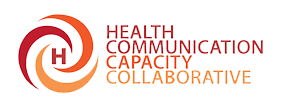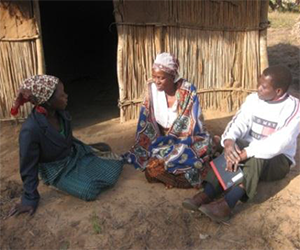Example: Determining Program Theory
Tchova Tchova, Juntos Vamos Mudar
Formative research in Mozambique found that men and women would like to establish more equitable gender relations and engage in lasting relationships where dialogue, harmony, and understanding prevail. They are unable to behave differently in their relationships, however, due to their need for social validation and peer recognition and to their assumption that their community would not accept changes in gender relations. This finding suggests that gender relations in Mozambique are in a process known as the “Spiral of Silence ”
Developed by Elizabeth Noelle-Neumann, the Spiral of Silence posits that people tend to remain silent when they feel their views are in the minority. People have a fear of isolation and know what behaviors will increase their likelihood of being isolated or criticized. This fear pushes them to stay away from behaviors and to not express opinions they feel will not be accepted by the majority. Traditional gender norms still guide the behavior of the majority so it is to be expected that this fear is strong in those who think or behave in ways that go against tradition. The Spiral of Silence, however, is an indicator of change underway in both social norms and in the scale of values.
With a program theory based on the Spiral of Silence and Bounded Normative Influence which suggests a minority position can develop into a social norm,Tchova Tchova built upon this nascent shift in norms to develop a communication strategy that worked to strengthen social validation and peer support for more equitable social behaviors which in turn reduce the risk of HIV transmission.
Women and men realize that there is high risk of HIV associated with multiple concurrent partners and know that such relationships bring conflicts not only to the couple but to the extended family, but they are afraid to express these opinions or change their behavior. Tchova Tchova identified this window of opportunity where a shift in thinking was silently underway and focused activities on changing social norms and gender factors that directly fuel the HIV/AIDS epidemic in Mozambique.


